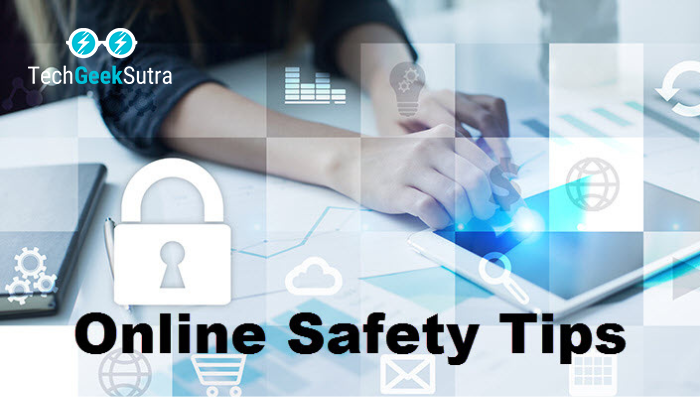Introduction
In today’s digital age, staying safe online is more important than ever. With the increasing presence of cyber threats and online scams, protecting your digital life should be a top priority. Whether you’re browsing the internet, shopping online, or engaging in social media, it’s crucial to adopt effective strategies to safeguard your personal information and ensure a secure online experience. In this comprehensive guide, we will share essential tips and best practices on how to stay safe online, empowering you to navigate the digital world with confidence.
Create Strong and Unique Passwords
One of the simplest yet most effective ways to stay safe online is by creating strong and unique passwords. Avoid using easily guessable passwords like “123456” or “password.” Instead, opt for complex combinations of letters, numbers, and symbols. Additionally, use a different password for each of your online accounts to minimize the risk of multiple accounts being compromised if one password is compromised. Consider using a password manager to securely store and manage your passwords, eliminating the need to remember them all.
Be Mindful of Phishing Attempts
Phishing is a common method used by cybercriminals to trick individuals into revealing sensitive information. Be cautious of suspicious emails, messages, or calls asking for personal or financial details. Legitimate organizations will never ask for sensitive information through unsecured channels. Avoid clicking on unknown links or downloading attachments from unfamiliar sources. When in doubt, verify the authenticity of the request directly with the organization through their official website or contact information.
Keep Your Devices and Software Update
Regularly updating your devices and software is crucial for maintaining online security. Updates often include important security patches that address vulnerabilities and protect against emerging threats. Enable automatic updates on your operating system, web browsers, antivirus software, and other applications. This ensures that you have the latest security enhancements and bug fixes, reducing the risk of exploitation by cybercriminals. Additionally, keep your device firmware up to date, including routers and IoT (Internet of Things) devices.
Utilize Two-Factor Authentication
Two-factor authentication (2FA) adds an extra layer of security to your online accounts. It typically involves providing a second form of verification, such as a unique code sent to your mobile device, in addition to your password. Enable 2FA whenever possible, especially for your email, banking, and social media accounts. This significantly reduces the chances of unauthorized access, even if your password is compromised. Take advantage of the enhanced security offered by 2FA to protect your sensitive information.
Be Cautious of Public Wi-Fi Networks
Public Wi-Fi networks can be convenient but also pose significant security risks. Avoid accessing sensitive information, such as online banking or shopping, when connected to public Wi-Fi. These networks are often unsecured, making it easier for hackers to intercept your data. If you must use public Wi-Fi, consider using a virtual private network (VPN) to encrypt your internet connection and protect your privacy. Additionally, disable automatic Wi-Fi connections on your devices to avoid inadvertently connecting to insecure networks.
Regularly Backup Your Data
Data loss can occur due to various reasons, including malware attacks, hardware failures, or accidental
deletions. To safeguard your important files and documents, regularly backup your data. Utilize cloud storage services or external hard drives to create backups of your data. Set up automated backups or establish a routine for manually backing up your files. By doing so, you can easily restore your data in the event of a cybersecurity incident or device failure, ensuring that your digital life remains intact.
Practice Safe Online Shopping and Banking
When engaging in online shopping or banking, it’s essential to prioritize security. Only make purchases or provide financial information on reputable websites that have secure connections indicated by “https://” and a padlock symbol in the address bar. Avoid sharing sensitive information over email or unencrypted messaging platforms. Furthermore, monitor your financial statements regularly to identify any suspicious activity and report it immediately to your bank or credit card provider.
Educate Yourself about Online Threats
Staying safe online requires staying informed. Keep up to date with the latest online threats and common scam techniques. Educate yourself about phishing, ransomware, identity theft, and other cybersecurity risks. Stay informed through trusted sources such as cybersecurity blogs, reputable news outlets, and official websites of cybersecurity organizations. By being aware of potential threats, you can better recognize warning signs and take appropriate measures to protect yourself and your digital assets.
Use Antivirus and Security Software
Protect your devices with reliable antivirus and security software. Install reputable software that provides real-time scanning, malware detection, and firewall protection. Keep the software updated to ensure it can effectively detect and mitigate emerging threats. Regularly scan your devices for malware and perform system checks to identify and remove any potential security risks. A robust antivirus program acts as a vital defense against various types of malicious software and helps maintain your online safety.
Trust Your Instincts and Exercise Caution
Above all, trust your instincts and exercise caution while navigating the online world. If something feels suspicious or too good to be true, it probably is. Be wary of unsolicited emails, pop-up ads, or requests for personal information. Think before you click on links or download files. Protect your privacy by adjusting your social media privacy settings and being mindful of the information you share publicly. By being vigilant and cautious, you can significantly reduce the risk of falling victim to online scams and threats.
Conclusion
In the digital age, staying safe online is paramount. By implementing these essential tips and best practices, you can protect your digital life, safeguard your personal information, and navigate the online landscape with confidence. Prioritize strong passwords, stay alert to phishing attempts, keep your devices updated, utilize two-factor authentication, and remain cautious in your online activities. Stay informed, trust your instincts, and embrace a secure and resilient online presence.







